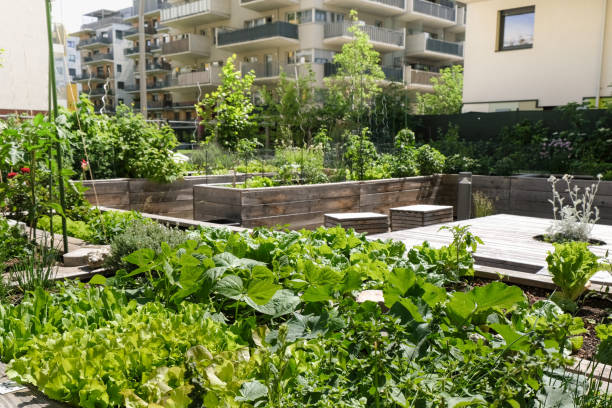Unearthing the Health Potential of Urban Gardening
Urban gardening, once seen as a hobby for green-thumbed city dwellers, has grown into a global health movement. With roots in sustainability and community bonding, this practice has blossomed into a wellspring of wellness benefits. In this article, we will delve into the historical context, current health trends, and research-backed benefits of urban gardening, providing practical advice for those keen on sowing the seeds of health in their own backyard.

The Seed of the Idea
Urban gardening isn’t a new concept. During World War II, ‘Victory Gardens’ were encouraged to boost morale and supplement food supplies. However, the modern urban gardening movement has grown out of a need for sustainable living and self-sufficiency, particularly in densely populated cities. Today, it’s not only seen as a solution to food deserts but also as a means to improve health and well-being.
Blooming Health Trends in Urban Gardening
The health benefits of urban gardening are multi-faceted. It promotes physical activity, improves diet quality through increased vegetable consumption, and fosters mental well-being by reducing stress levels. Moreover, a study published in the Journal of Public Health found a significant association between community gardening and improved mental health. Additionally, urban gardening also encourages social interaction, building a sense of community and reducing feelings of isolation.
Digging Deeper: The Science of Urban Gardening
Urban gardening is not just about growing plants; it’s about growing health. Numerous studies have confirmed its positive effects on both physical and mental health. Gardeners tend to have lower body mass indexes and a reduced risk of obesity, according to research published in the American Journal of Public Health. Moreover, studies have shown that exposure to green spaces can reduce stress levels, enhance mood, and improve cognitive function.
Challenges and Credibility of Urban Gardening
Despite its numerous benefits, urban gardening faces challenges such as limited space, soil contamination, and lack of access to resources. However, innovative solutions like vertical gardening, hydroponics, and community composting are emerging to overcome these obstacles. Moreover, the credibility of urban gardening as a health intervention is backed by numerous scientific studies, making it a promising strategy for holistic well-being.
Health In Your Hands: Urban Gardening Insights
- The simple act of touching soil can boost mood and reduce stress levels, thanks to soil bacteria’s effects on our brain chemistry.
- Urban gardening can contribute to a balanced diet by providing fresh, locally grown vegetables.
- Physical activity involved in gardening can help maintain healthy body weight and improve cardiovascular health.
- Gardening activities can enhance cognitive function and may even reduce the risk of Alzheimer’s disease.
- Building a community garden can foster social interactions and strengthen community bonds.
In conclusion, urban gardening is more than a sustainable solution to city living; it’s a holistic health practice with deep roots in community, sustainability, and well-being. As we continue to unearth the wellness potential of urban gardening, we encourage everyone to dig into this rewarding practice. Whether you have a small balcony or a shared community space, every seed planted is a step towards better health and wellness.





